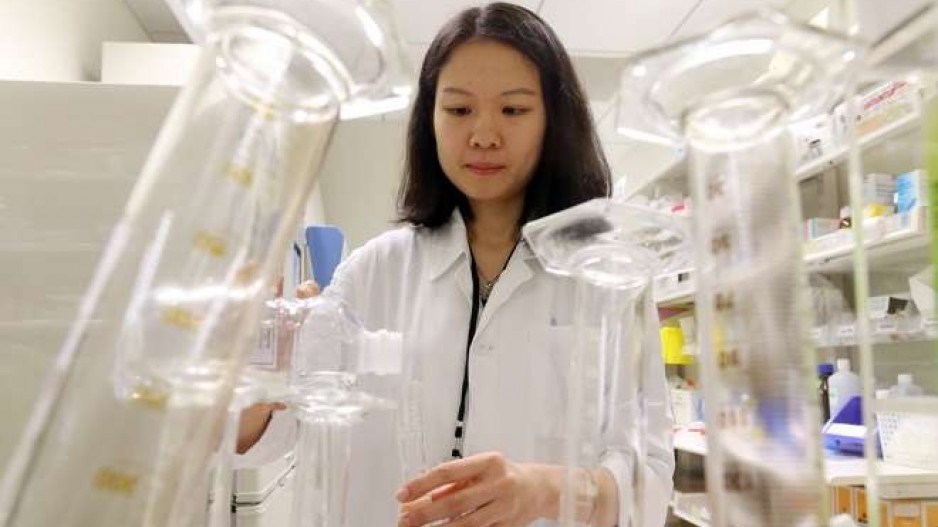Alibaba Health Information Technology, the Hong Kong-listed health care flagship of Alibaba Group, is gearing up to expand its pharmaceutical e-commerce business after reporting an interim loss in the six months ended September 30.
The company has been looking to swiftly diversify its operations, following the China Food and Drug Administration’s decision in February to end mandatory use by drug trading enterprises of its product identification, authentication and tracking system on the mainland.
It started an online retail pharmacy for over-the-counter drugs in August, when it completed the buyout of licensed online drug retailer Guangzhou Wu Qian Nian Pharmaceutical Chain Company.
“This business will quickly grow to become the most important source of operating revenue for the group,” Alibaba Health chief executive Wang Lei said in the company’s filing to the Hong Kong stock exchange on Thursday.
Wang pointed out the company plans to deliver “a more transparent supply chain of health care products through internet-based solutions”.
“There is still much room for improving efficiencies in the pharmaceutical products supply chain,” he said.
Alibaba Health posted a slightly higher interim net loss of 102.39 million yuan , compared with a 100.48 million yuan deficit in the same period last year, on increased administrative and product development expenses.
Revenue climbed 220 per cent to 55.03 million yuan from 17.19 million yuan, which the company attributed to a 185 per cent year-on-year growth in income to 31.79 million yuan from its drug-tracking system, which saw a high number of medical institutions and pharmacies start using it in the second half of last year.
Wang said Alibaba Health has developed a new online service called Ma Shang Fang Xin to assist enterprises – including those from the drug, food and nutritional supplement industries – in tracking the full life cycle of their products, which will help fulfil the regulatory compliance needs of those companies.
“The [mainland] government still requires enterprises to be responsible for adopting tracking systems for their products,” Wang said.
He said the company’s Alihealth Pharmacy on Alibaba online retail platform Tmall.com has rapidly grown since it was launched, supported by an extensive warehousing, logistics and customer service. New York-listed Alibaba owns the South China Morning Post.
In September, Alibaba Health started to provide outsourcing and so-called value-added services, such as online merchants’ business development and technical support, for certain pharmaceutical-related categories on Tmall. It receives a 21.5 per cent cut of the fees paid by the merchants to Tmall.
The company has also taken the lead in establishing a Chinese pharmaceutical online-to-offline alliance with more than 100 traditional pharmacy chains across more than 100 mainland cities.
In addition, Wang said Alibaba Health is continuing its efforts to build an internet-based “tiered medical services” system in the country’s rural areas. The firm has organised certified doctors and pharmacists to provide online health consultation services, allowing users to easily obtain real-time professional guidance.
According to Deloitte, public hospitals remain the mainland’s “dominant care purveyors”, where health care spending is forecast to reach US$892 billion in 2018.
It said the mainland had a large health care demand gap due to an ageing population, growing urbanisation, proliferating lifestyle diseases, rapidly increasing consumer wealth and advances in universal health care insurance coverage.




